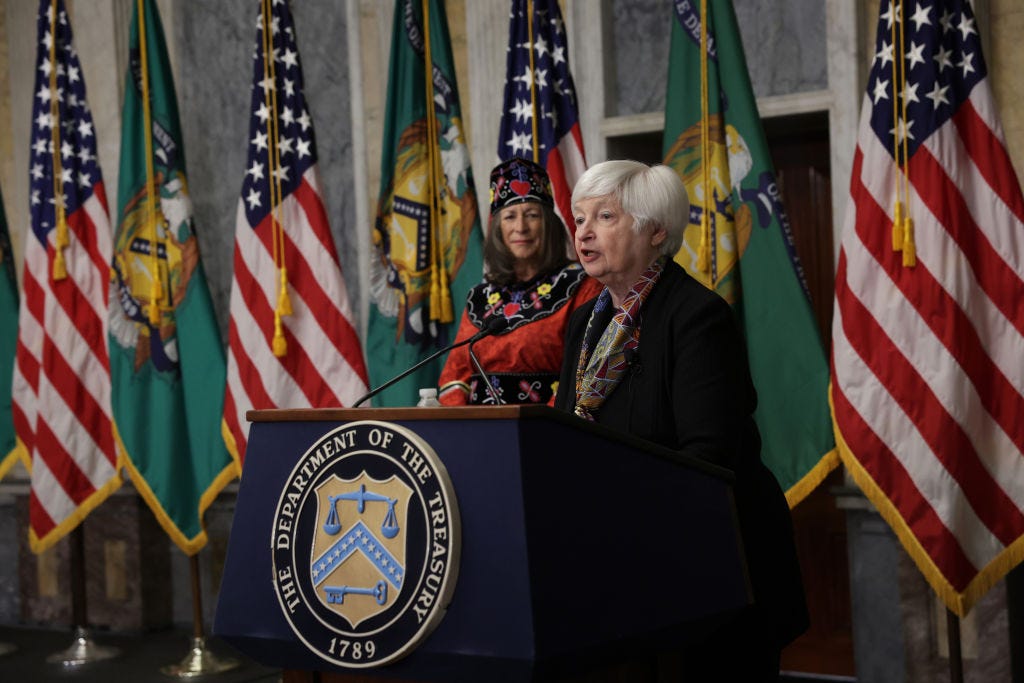Treasury increasingly including Natives in its equations
New hires happening, but there's a lot of ground to make up for.

WASHINGTON — As the U.S. finds itself in the midst of increasing economic turmoil, th…
Keep reading with a 7-day free trial
Subscribe to Indigenous Wire to keep reading this post and get 7 days of free access to the full post archives.

